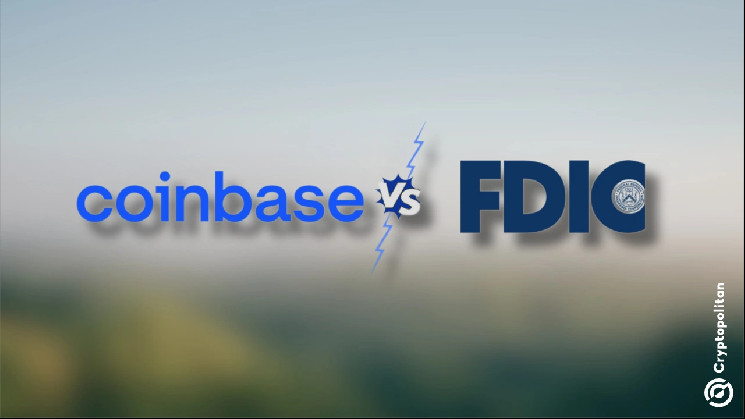Coinbase, a prominent cryptocurrency exchange in the United States, is currently embroiled in a legal battle with the Federal Deposit Insurance Corporation (FDIC). The exchange has filed a motion in the D.C. District Court to reinstate its Freedom of Information Act lawsuit against the government agency, citing the FDIC’s continued withholding of crucial documents and lack of full cooperation in providing requested information.
The lawsuit aims to compel the FDIC to disclose records of its communications with banks regarding cryptocurrency activities, including the issuance of ‘pause letters’ instructing banks to cease offering crypto services.
Coinbase’s ongoing dispute with the FDIC revolves around Operation Choke Point 2.0, a controversial initiative that seeks to restrict banks’ interactions with high-risk industries, including cryptocurrency businesses. Despite initial hopes for a resolution outside of court following the appointment of new leadership within the FDIC, Coinbase’s Chief Legal Officer, Paul Grewal, expressed dissatisfaction with the agency’s transparency and cooperation.
While acknowledging some improvement under the new leadership, Grewal emphasized the need for greater transparency from the FDIC. The exchange is pushing for the court to resume the lawsuit due to the agency’s cessation of information sharing and recent dismissal of Coinbase’s requests as unreasonable.
Operation Choke Point 2.0 has been criticized for potentially stifling innovation in the cryptocurrency sector by limiting access to traditional banking services for industry players. Coinbase argues that the FDIC’s actions have created a hostile environment for cryptocurrency businesses and hindered their ability to compete in the financial market.
By seeking court intervention to compel the FDIC to address its overreach and prevent future restrictions, Coinbase aims to safeguard innovation in the digital assets market. The exchange asserts that the FDIC’s actions violate due process and the First Amendment, as companies should not face penalties based on the nature of their business operations.
If successful in reviving the lawsuit, Coinbase’s efforts could have far-reaching implications for both the cryptocurrency industry and regulatory agencies. The case underscores the ongoing tensions between traditional financial institutions and the burgeoning digital asset landscape, highlighting the importance of regulatory clarity and transparency in fostering innovation and competition.
As Coinbase continues to push for accountability and transparency from the FDIC, the outcome of this legal battle could shape the future regulatory landscape for cryptocurrency businesses in the United States and beyond.

